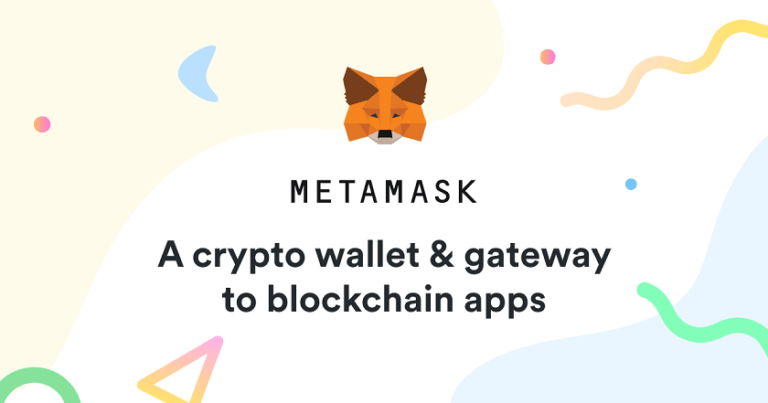Metamask is an Ethereum tokens wallet originally developed by ConsenSys and a browser for decentralized applications on the Web3. The best known is its version in the form of an extension to an Internet browser. Today 's Metamask Review Introduces You To All The Wallet Options And Metamask tutorial. The wallet has over a million active users per month and is open-source for non-corporate purposes.
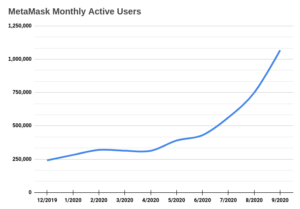
Metamask Wallet and Web3
Metamask reviews must always start with the Web3. Web3 solves the problem of losing control over user data (personal and other data that should not be revealed to everyone in order for an application to work properly), the problem of non-transparency (some mechanisms on the Internet can not be internally verified, and therefore know if they work as they should) and the problem of rewarding platform service providers (decentralized social networks or games, etc.).
Web2, the current web, has never really been without an intermediary. There has always been an internet provider, DNS servers, etc. above you, but blockchain fixes that. For Web2, in fact, all data and transactions are owned by the intermediary, and even though it has different contracts and statements, nothing really changes. Blockchain is the world's first technology for real control.
Blockchain = universal state layer
The current site is not a stateful protocol, but only a protocol for moving information. It regulates the transport of data, not their state. Although Blockchain is not yet able to process such an amount of data as to capture the "state" of the entire Internet, it is already able to interact with temporary content on blockchains today, for example, the Metamask wallet. What does it mean? This means interpreting the data on blockchains in the form of an online game (generally in the form of a decentralized application - Dapp) and performing each action as a transaction - an attack in the game on another character, sending a message in the messenger, etc.
Metamask reviews
This wallet will please everyone who needed to download extra applications to access each decentralized exchange office or application (DApps). The control itself is extremely simple - it is more difficult to understand the non-intuitive principle of the Web3, which is why the Metamask review started with it.
The wallet supports both iOS and Android, but most importantly it is an extension to the browser that will pop up whenever you want to interact with the DAppky interface.
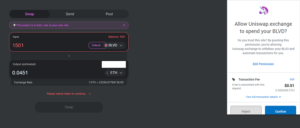
Supported browsers: Google Chrome, Firefox, Microsoft Edge, Brave (Bravo is already installed by default, it just needs to be activated in Extensions)
You might be interested in: You can trade cryptocurrencies on the Brave directly from the browser
Alternatives and competition
- Formatic - a more user-friendly and intuitive wallet that serves Web3 as Web2
- MyEtherWallet - Bitcoin Core level wallet
- Trust Wallet - the default Binance mobile wallet
- Atomic Wallet - something like Exodus
- Cipher Browser - the first DAppek mobile browser
You might be interested in: Review of BAT token or Brave internet browser with own ICO
Metamask tutorial
Metamask wallet is primarily an extension to the browser. It can be downloaded directly via metamask.io or via Extensions. But it is also a mobile application (since October 2018).
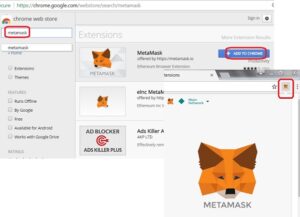
The right to view and change your data for all websites is because the wallet inserts a Javascript object into each Web3 page. This will not change it, but it will allow it to access the network. If you are still unsure, you can create an extra profile in the browser with an extension that you will only use for the wallet (so-called sandbox version).
Creating a new wallet
A metamask wallet is created just like any other wallet - it generates a recovery seed (12 secret words from which private keys are generated and which you should safely store exclusively in physical form, such as writing on paper) and you come up with a password.
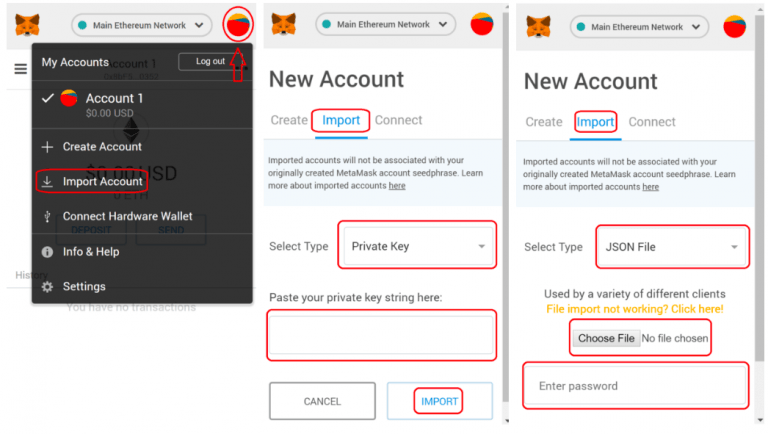
A wallet can have multiple accounts that are created within a single seed. Private keys or a wallet can also be imported using a JSON file or seed, but if they were not created by Metamask, they will not be associated with your account (they will not appear in "Accounts" - instead they will behave like a brand new wallet).
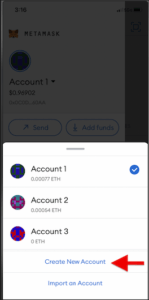
Metamask instructions for acquiring a wallet with Etherem
Interactions with the blockchain consume so-called gas. All interactions except reading the blockchain are charged, so you will first have to charge the wallet with Ether (the ETH address for acquisition is shown under the account, or under the picture of your account, which is unique to each user).
Before you start doing anything, check in the menu which network you are connected to (Ethereum Mainnet). Some applications run on so-called testnets, but this Metamask tutorial will not be about them.
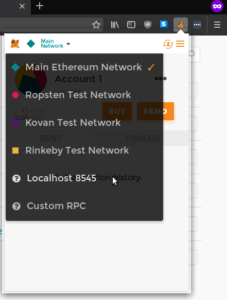
Metamask wallet for mobile devices works similarly to a computer and in terms of control behaves similarly to eg Trust Wallet - with a square in the upper right corner you scan QR codes (outgoing addresses, etc.), you can buy Ether on the card directly in the application, etc.
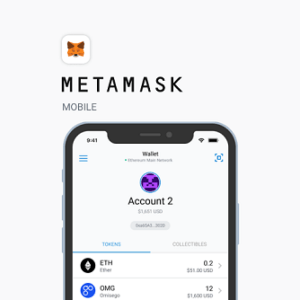
You may be interested in: Trust Wallet Review
The Metamask tutorial should also answer the question of how to synchronize your mobile and computer client - go to settings, advanced, synchronize with your mobile and scan your phone's QR code. Alternatively, you can import the recovery seed.
Metamask instructions for working with tokens
ERC-20 tokens and Ether are sent to the Metamask address in the extension. If you click on the account name, the address will be automatically copied to the clipboard. Only tokens from the Etherea blockchain can be sent to this address, otherwise they will be irretrievably lost.
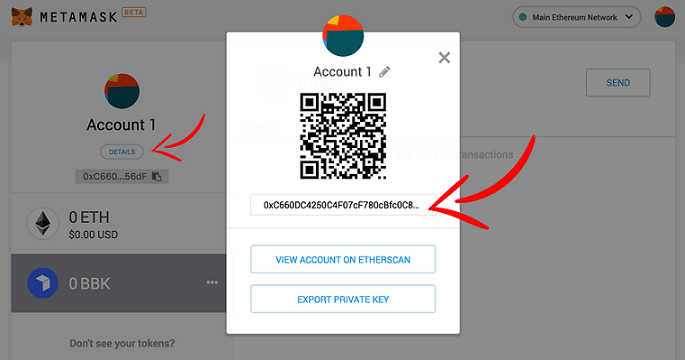

Some may not be displayed, then it is necessary to copy the so-called token contract address (eg from Etherscan) and give "add custom token".
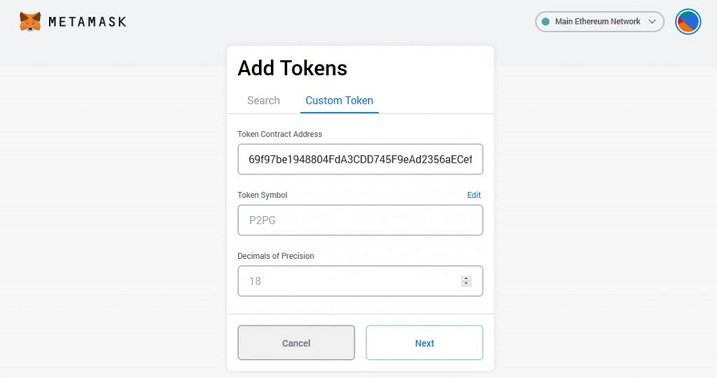
But why tokens at all? Web3 is in a way based on tokens. They represent objects in games, deposits on rental services, tickets or anything else. Other data (character abilities in the game, loan length, ticket expiration date, etc.) are assigned to tokens and together form the so-called global state of the Ethereum network.
Metamask instructions for connecting a Ledger or Vault
Hardware wallets act as isolation bridges between the infinitely dangerous Internet environment and private keys, but the Metamask wallet in conjunction with them has one more advantage - you can interact with the decentralized website and applications using hardware wallets even where this option is not supported.
Install the latest firmware on Ledger and have the latest version of the internet browser and the Ethereum application in Ledger (which you can check through Ledger Live -> Manager). Switch on "contract data" on the device. Keep it connected via USB and close Ledger Live. Unlock the device and go to the Ethereum application.
Then unlock your Metamask, click on the options and give "Connect Hardware Wallet".
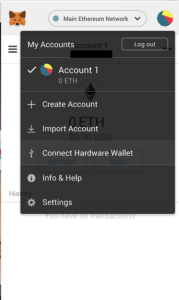
For the Safe, the connection is practically identical.
That is all?
Is this the decentralized website? What's next? Unfortunately, Web3 intuitively does not correspond to our experienced ideas about browsing the Internet. Browsing Web3 means browsing a blockchain and interacting with it means interacting with smart contracts (internal accounts with their own logic) that act as applications using paid transactions.
Now is the time to move to the web interface of such applications. Just go for a while and you will find, for example, the popular decentralized Uniswap exchange office or the Aave rental protocol. Below you will find an overview of decentralized applications (Metamask wallet supports all).
Finance
Lend protocols: Compound, Oasis, Aave
Exchange offices and yield farming: Uniswap
Trading: Loopring
Prediction market: Augur
Anonymous transactions: Tornado cash
The vast majority of use cases involve decentralized finance (so-called DeFi).
You might be interested in: What are DeFi?
Entertainment
Lottery: PoolTogether
Games: Splinterlands, Crypto Dynasty, Decentraland
Technology
Why use DAppky?
Web3 is a completely new layer of the web, resp. new application elements so that you can interact with the blockchain. All application calculations are performed in EVM, so it "can't be bugged or gagged" like a traditional game.
Metamask security review
Unfortunately, by default, Infura provides the full node function, completely, so we have a broker problem here and we get rid of the benefits of decentralization. Infura does not even function as a simplified node of the network (so-called SPV - Simplified Payment Verification). However, managing a full-fledged Etherea node is very challenging, and so on I recommend connecting Metamask to your geth SPV nodewhich verifies at least the transaction block headers.
In addition, I recommend connecting to the Metamask Vault or Ledger so that the private keys are not stored on your computer.
Conclusion
We are at the end of the Metamask review. In principle, Web3 certainly has a future, but… Transaction fees are too high. For more complex applications, you can get as much as $ 100 per interaction. Metamask wallet is one of the most widespread wallets used for DeFi and DApps in the world, but if you have no idea how blockchain and decentralized applications work, ie Web3, you will never understand it. Web3 is not about the classic address bar or websites. If you liked this Metamask review and the Metamask tutorial or have a question, write to us in the comments.
